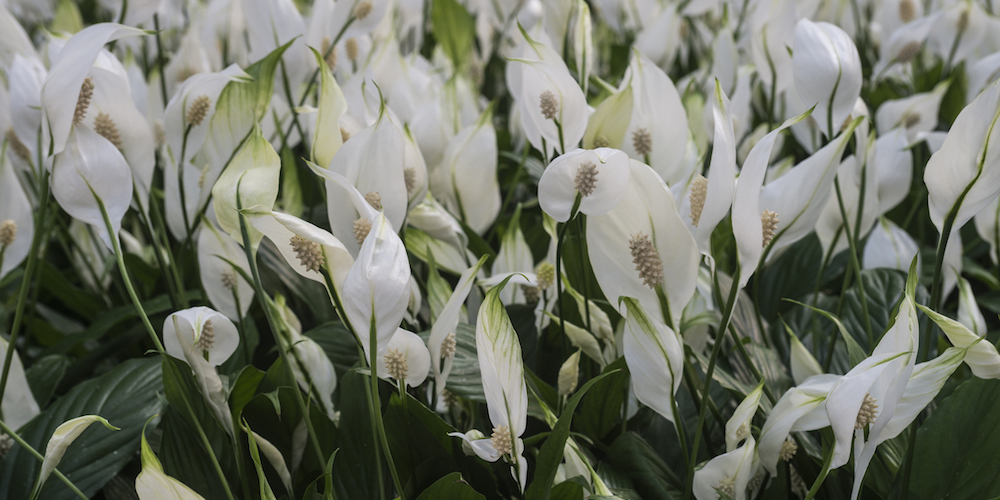First Breakfast
She wakes gradually, the earthy fragrance of fresh coffee calling her to the new day. She reaches out for the mug, set within easy grasp beside her. She drinks it black and enjoys the satisfying bitter bite and clarity of the morning treat. He lies next to her, propped up on his pillows and drinks his milk-laced tea; they chat, laugh, plan the day ahead. She takes her time to let the new day seep into her, enjoying the quiet and this time together.
She goes to the bathroom. Showers. Dresses. Waters the peace lily. She had bought it for Christmas and it was doing remarkably well. She does not have a deft hand with pot plants and others have succumbed to her less than tender mercies. This one is doing well, it has flowered agreeably, lime-flecked creamy white interjections among its abundant dark glossy green and has new leaves unfurling from tight emerald wraps. She snips off a spent flower with her nail scissors. She replaces the scissors, her toothbrush and the jug she has used to water the lily. She turns the plant slightly on its dish so it will grow evenly to the light. She will need to re-pot it soon, she thinks with satisfaction.
She goes to the kitchen, makes creamy scrambled eggs on toast, adds grilled bacon as a treat, makes tea for him and dares herself a second coffee. They sit eating, sipping and talking. They are easy together, accommodating each other. They have managed to keep the magic of their relationship alive and are happy together; happy with their own company and with each other’s. It is comfortable but never tired, she thinks. She is grateful for it, for the comfort and trust, for the laughter, the teasing, their playful natures complementing the life they make together.
She tidies the breakfast plates away and enjoys the clean order of shelves and drawers. She hears a sound. Turns on instinct towards his open arms and they hug before they take leave of each other for the day that lies ahead. He tells her he will be home in time for dinner and leaves for his day. She is relaxed and contented. They make no unreasonable demands of each other. They are, for the most part, kind to each other. She stops daydreaming as she sees the time and that she will be late for work if she doesn’t get a move on. She makes her way to her car, drives.
In the late afternoon she works in the garden, the sun warming her and the soil she clears. The pungent fragrance of bruised thyme surrounds her as she weeds around its generous growth. She picks some leafy stems to use in the salsa verde she will make to accompany the lamb rump for dinner. She straightens the trailing cucumber vines and turns the leaves to protect the last of their long, green fruit. She plucks the last of the small black Krim tomatoes, eats one and enjoys the tangy burst of warm flavour. Chillies hang as hot, red streaks from their slender stems; exclamation marks punctuating the foliage. The cicadas scratch their insistent summer sound.
In the evening she makes a salad, puts the salsa verde into a crystal dish, opens a bottle of red wine, sets the table, and lights pomegranate-scented candles while he sears the lamb. They share the stories of the day. They plan and arrange their lives around each other. She gets ready for bed; cleanses, tones, moisturises. She faithfully continues her careful routine yet doubts that it has kept time at bay but is happy enough with her reflection in the bathroom mirror. She remembers to water her peace lily.
They settle in to bed, to read, chat, finally to sleep.
Second Breakfast
She was woken by the sound of his opening his dresser drawers, dressing and then making his way to the kitchen, as he did every morning. She lay in the cooling warmth of their shared bed and let the thoughts of the day take shape, planned her way through the hours ahead of her then got up and joined him in the kitchen where he had made tea for himself, coffee for her. She set muffins in the toaster that she would butter and spread with her new-season lime curd when she had showered and dressed.
In the bathroom she noticed the peace lily she had bought for Christmas, saw crossly that she had forgotten to water it and that it was looking parched and wilted. She watered it, pinched a dead flower off with her fingernails and turned it on its dish to its less dry-looking side to hide the neglect. She always had such good intentions towards her pot plants but somehow she often forgot them and they withered from her absent-mindedness.
They ate their muffins with the lime curd, enjoying its zesty butteriness, and sipped their tea, reading the newspaper, in companionable harmony. It was not a passionate, emotional union but one that was nonetheless mostly affectionate and warm, friendly. She hoped that it was sustaining for him, as it was for her, and knew that he would answer that it was should she ask him, but she was just never quite sure. There was sometimes room for doubt, she thought.
She washed the plates, put them away. She would clean and tidy the shelves at the weekend, she planned. She heard a sound and turned instinctively toward it; the sound of his cell-phone and keys clattering on the kitchen counter as he picked them up. He said goodbye, that he would be home late for dinner and he hoped that she would have a good day. In the meantime she would be late for work if she did not get a move on. She picked up her keys, made her way to the car, drove.
They had not always been this way. They had laughed more, made fun of each other, teased and played, but the years shared had shown less reason to laugh and more of worry and concern.
Sometimes now the teasing had an edge to it, the laughter was more forced, each sometimes took offence when possibly there was no need to. She felt jangled, on edge. She did not quite know why. She hated the broody, distant times as neither, she thought, enjoyed the disturbed balance of their life together but somehow they got out of step with each other. They took longer to recover these days, longer to make it back to an easier, more tolerant compatibility.
In the late afternoon she weeded the garden, tidied the straggling cucumber vines, picked the last of the small black Krim tomatoes for a salad for dinner and saw that the thyme was becoming smothered. She weeded quickly around it and picked some young stems to add to the salad. The red chillies would soon be ready she thought. The closing dark drove her indoors.
She made a quick dinner from leftovers from last night’s lamb roast, put his on a plate, covered it and placed it in the fridge, salad to the side. He had not said what time he would be home so she ate alone and propped her book in front of her as she did so. She was quite happy with her own company and although it was a nuisance when he didn’t let her know when he would be back, she was happy to read while enjoying her solitary meal.
Later she got ready for bed; cleansed, toned, moisturised. She made a mental note to remember to water the peace lily again in the morning to make up for the previous lack and settled in to read her book until the time he would come home.
Third Breakfast
She woke. Her thoughts began to pitch her into the day. She got up. The tension was ever- present and raw. She went to the bathroom. Showered. Dressed. She saw the peace lily, bought for Christmas and not doing well. She looked at it with disdain, decided she would just let it die, deliberately not water it. Its green leaves and white flowers taunted her, made her feel jangled. Let it shrivel and wither she thought. Punish it. It had little relevance in her unpeaceful life. She pushed it to the back of the cabinet on which it sat.
She put her toothbrush away and with it the jug she watered, well, had previously watered, the peace lily. A decisive, conclusive action. The lily was not to be spared. She knew her decision was petty, foolish and pointless but it gave her a feeling of control over something in her life. And yet the certain death of the plant would simply mirror her life. The white turning brown, the green gloss fading, the collapse of the structure, the desiccated, irrevocable husk.
She went to the kitchen, made breakfast – tea and toast. Apart from the scraping of knife on toast, the clink of spoon on marmalade dish, the stir of spoon in cup, it was silent, they were both hurting, both hurt. There seemed no way back, no way forward, just this terrible grinding existing.
He was moody, sullen, drunk by turns; no day the same but all lived on the edge of his temper. She was frightened and her terror made her shrill, complaining, or silent and brooding. They were, she thought, both frightened. Of the past, the present and the absence of future that they both knew was inevitable.
She heard a sound, turned on instinct, saw a plate. In mid-flight. Hurled at her in rage. It bit deeply into the wall immediately beside her, a jagged gape where her head would have been had she not ducked. He was mouthing, shouting, menacing. Her terror numbed her, took her to the car, the driveway. Doors locked, hands shaking, mind frozen. She drove.
It had not always been like that. They had married in hope and love. She had worn soft pink and had her hair done; tiny pink rosebuds strewn throughout pinned-up curls. He wore a suit and she thought he looked handsome in his dark-haired, dark-mooded way. They had made their vows earnestly, but the scant peck on her cheek when he may now kiss his bride had chilled her. They had talked to family, friends, sipped champagne, all in well-meaning belief. They were the last to leave their reception; just the two of them left outside as the doors were locked. With no money for a taxi in their wedding finery they had walked miles home in chill and dark. Although she laughed and made light of it for his sake, he did not; he was embarrassed by his lack of fore-thought. Their marriage was not consummated then or for many weeks. It was not a very encouraging start. The wedding photographs seemed to show concern on some guests’ faces; as if they knew what she did not, it seemed to her later. She stored the album away, so she could not see what they had been and what they had become.
The cracks were gradual, small irregular traceries that began stealthily and grew across the surface and then took root in his lies and damaging treacheries. They finally split apart the fabric of the life together and it was broken, over. The relief she felt was palpable. The hurt was jagged and splintery, as though she had walked on shards of glass. She got on with it as she was bidden. There was no other way. The peace lily, too, was dead.
About our short story author
Shelley Kirton
Shelley is an avid reader and a writer of short stories. She loves the feeling of accomplishment when she can let a story stand on its own merits. She loves words and the subtlety of meaning that can be conveyed. She enjoys seeing multiple realities emerge; there is seldom an ultimate truth. She has done many courses including the short story course with NZ Writers College. She is now working on a collection of short stories.







